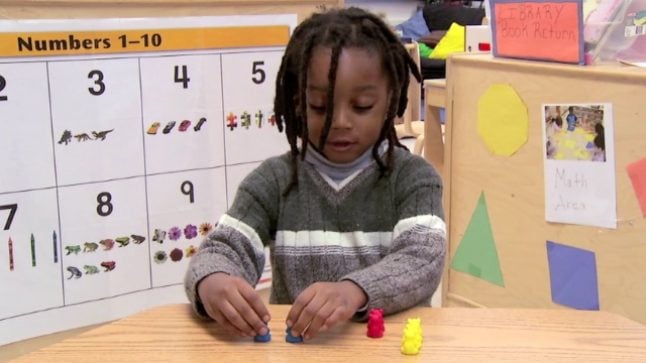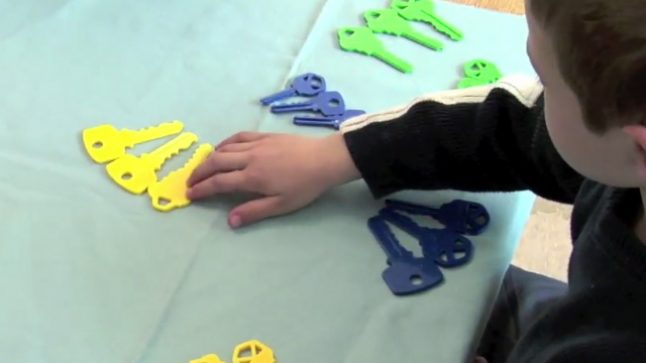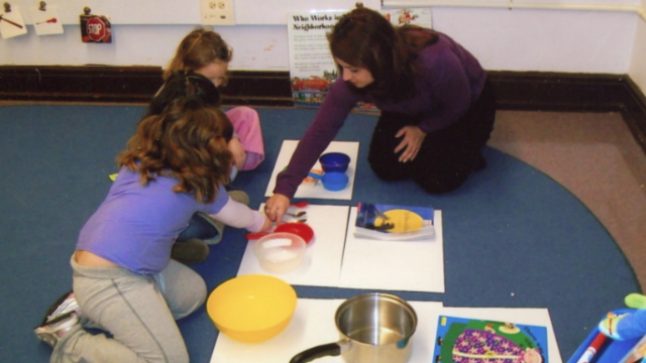Sets are basic to children’s thinking and learning. They are also basic to our number system. One of the most important jobs of each number is to describe “how many” there are in a set of things — be it one, seven, or three hundred and nineteen. Before we can figure out how many apples there are, we have to decide which things are apples, and which are not. Once we’ve created the set of things that are apples, perhaps by separating them from the oranges, then we can count them. Counting requires a set, and as a result, the properties of sets have a large influence on the base 10 number system, and on mathematics.
Copyright: Erikson Institute’s Early Math Collaborative. Reprinted from Big Ideas of Early Mathematics: What Teachers of Young Children Need to Know (2014), Pearson Education.




